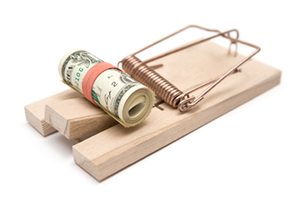The Seed Enterprise Investment Scheme (SEIS) offers some generous tax breaks, but for unwary investors the program also has some tax pitfalls.
Making some wrong investment decisions can result in losing valuable income tax and capital gains tax benefits.
Here’s a guide to some of the key points to watch:
-
Make sure the investment is a SEIS – HM Revenue & Customs (HMRC) pre-approves SEIS investments, so ask for proof of approval from the tax man, but don’t leave it there. Phone up the tax office and check out the reference to make sure the investment has genuine approval as it’s possible to easily forge a letter
-
Keep within the timing – SEIS is a three-year project and ties any investment up for the whole period. Pulling cash out early will mean losing tax reliefs pro rata the amount of time the SEIS has left to run. The tax claw back is whichever is the lowest of the original reduced income tax amount or 50% times the sales proceeds received if SEIS shares are sold at a loss.
-
Manage a SEIS investment – Insist on board minutes or having someone independent representing you at director meetings. If the SEIS loses the tax status during the three-year investment period, the tax breaks go with it. If the directors are thinking about making changes to the business that will affect SEIS status, then investors need early warning
-
Don’t be tempted by dividends – Although investment cash comes with a 50% income tax reduction and capital gains tax breaks if other assets are sold to raise the SEIS cash, dividends on shares are taxed.
-
Understand capital gains tax relief – CGT relief comes with provisos. CGT exemption on disposing of SEIS shares is not automatic but conditional. The investor must have held the SEIS shares for three years to qualify for the CGT exemption.
-
Tax avoidance – If the SEIS company is not genuinely set up to trade but as a vehicle for tax avoidance, HMRC can withdraw any tax breaks under the scheme
SEIS also comes with a welter of qualifying rules for companies seeking investment and HMRC has made clear that checking out a company falls within the SEIS criteria is part of the due diligence the investor should carry out.
Legal and other fees involved with proper due diligence could add up to 10% to the cost of investing in a SEIS and are charges that are not subject to tax relief within the scheme.
